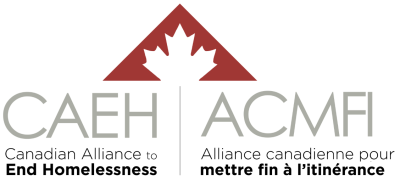Homelessness Reduction Innovation Fund
The Homelessness Reduction Innovation Fund provides one-time grants for projects aimed at achieving measurable reductions in homelessness.
HRIF grants will be distributed to communities for targeted, data-informed projects that measurably reduce homelessness. CAEH will offer one-on-one guidance and coaching to communities on their initiatives and share successful approaches with other communities across the country.
The Homelessness Reduction Innovation Fund is part of the federal government’s commitment to Reaching Home: Canada’s Homelessness Strategy, as announced in Budget 2024. This project is funded by the Government of Canada.
Eligibility
An Expression of Interest (EOI) will be used to assess eligibility and project suitability for HRIF. Based on EOI responses, communities may be invited to complete an application.
To be eligible for the Homelessness Reduction Innovation Fund (HRIF), communities (outside Quebec1) must be:
- The Reaching Home Community Entity (CE) for the Designated Community (DC) stream, and/or the Indigenous Homelessness (IH) stream, and/or the Territorial Homelessness (TH) stream, and/or the community lead organization participating in Built for Zero – Canada (BFZ-C).
If your organization is not the CE for an eligible stream or community lead for BFZ-C in your community, please reach out to them to collaborate on a project. If your community has both a CE for the Designated Community stream and community lead with BFZ-C, and these are not the same organization, please collaborate on one project with one organization taking the lead.
Communities must also be able to demonstrate:
- An improvement project aimed at reducing homelessness by increasing move-ins to housing or decreasing inflow to homelessness for the chosen target population.
- Quality By-Name Data (QBND) for their project’s target population(s) (confirmed by CAEH). Eligible target populations for the purposes of HRIF projects include:
-
- Chronic Homelessness (including the following chronic sub-populations: single adults, youth, families, Indigenous)
-
- Veteran Homelessness
-
- Unsheltered Homelessness
- Communities that do not yet meet the eligibility criteria outlined above are still invited to complete the Expression of Interest. The intention of the HRIF is to support communities’ efforts to make measurable reductions in homelessness. Where eligibility criteria are not yet met, applicants are encouraged to provide context in the fields provided in the Expression of Interest. While applicants must meet eligibility to receive funding, projects that don’t yet qualify may receive support to strengthen future applications.
1 Organizations in Quebec are not eligible to apply for the Homelessness Reduction Innovation Fund. Housing, Infrastructure and Communities Canada will collaborate with the Government of Quebec to put in place this funding in recognition of the jurisdictions and priorities of both governments in the prevention and reduction of homelessness. Questions can be directed to Housing, Infrastructure and Communities Canada at: reachinghomeinfo-infoversunchezsoi@infc.gc.ca.
Note:
- CAEH will share learnings and successes from funded projects with other communities across the country. Funded projects commit to sharing their learnings, outcomes, and project data with CAEH. Communities must be able and willing to share QBND with CAEH monthly (at minimum).
Expressions of Interest
Communities will be able to express interest in the next round of HRIF between July 14 and August 15.
Interested communities are encouraged to attend a one-hour information session to learn more:
English: July 9, 2025 at 2:00PM ET – Register here
French: July 10, 2025 at 2:00PM ET – Register here
Indigenous Homelessness Community Entities: July 16, 2025 at 2:00 PM ET – Register here
- Led by the National Indigenous Homelessness Council, this will be an opportunity to learn about the opportunities and implications of being funded through HRIF, including topics related to Quality by-name data (QBND) and data governance, project design and evaluation, as well as narrative sovereignty and knowledge-sharing. This information session is for all Indigenous-led organizations and CEs funded through Reaching Home’s Indigenous Homelessness Stream (including those that receive both Indigenous Homelessness and Designated Community funding).
For additional information, see Frequently Asked Questions.
Key Dates
July 14, 2025 – Expression of Interest submission period opens
August 15, 2025 – Expression of Interest submission period closes at 4 pm ET.
September 2, 2025 – Invitations to complete an application will be extended. Communities will also be informed if they were not selected to receive an application
September 26, 2025 – Applications due by 4 pm ET.
October 24, 2025 – Applicants will be informed of decision
Target of early 2026 – Expression of Interest submission period opens for next round of HRIF
About us

The Canadian Alliance to End Homelessness works to prevent and end homelessness by helping to build effective community response systems and campaigning for the policy changes needed for everyone to have a place to call home.
